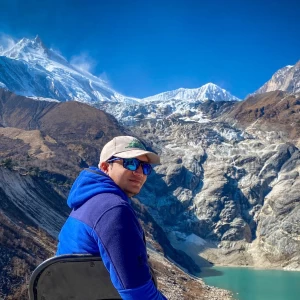Discover key insights on the costs of trekking to Everest Base Camp, tailored for all types of travellers. Plan wisely and make the most of your adventure!
How Much Does an Everest Base Camp Trek Cost?
Table of Contents
The Everest Base Camp trek is one of the most iconic adventures in the world. It offers breathtaking views of the Himalayas and a challenging yet rewarding experience. However, understanding the Everest Base Camp trek cost is essential for proper planning.
The cost can vary widely, depending on several factors. On average, the trek ranges from USD 1,000 to USD 4,200. It covers essential expenses like permits, guides, flights, meals, and accommodation. Several factors impact the Everest trekking cost. Hiring a guide or porter can increase prices but ensure a safer experience.
Trekking independently may save money but can be riskier. Accommodation prices vary. Basic tea houses are affordable, while more comfortable lodges cost more. Transportation, such as Lukla flights, is another significant expense.
This article examines all the factors affecting Everest Base Camp trekking prices.
Join the cheapest Everest Base Camp Trek with us.
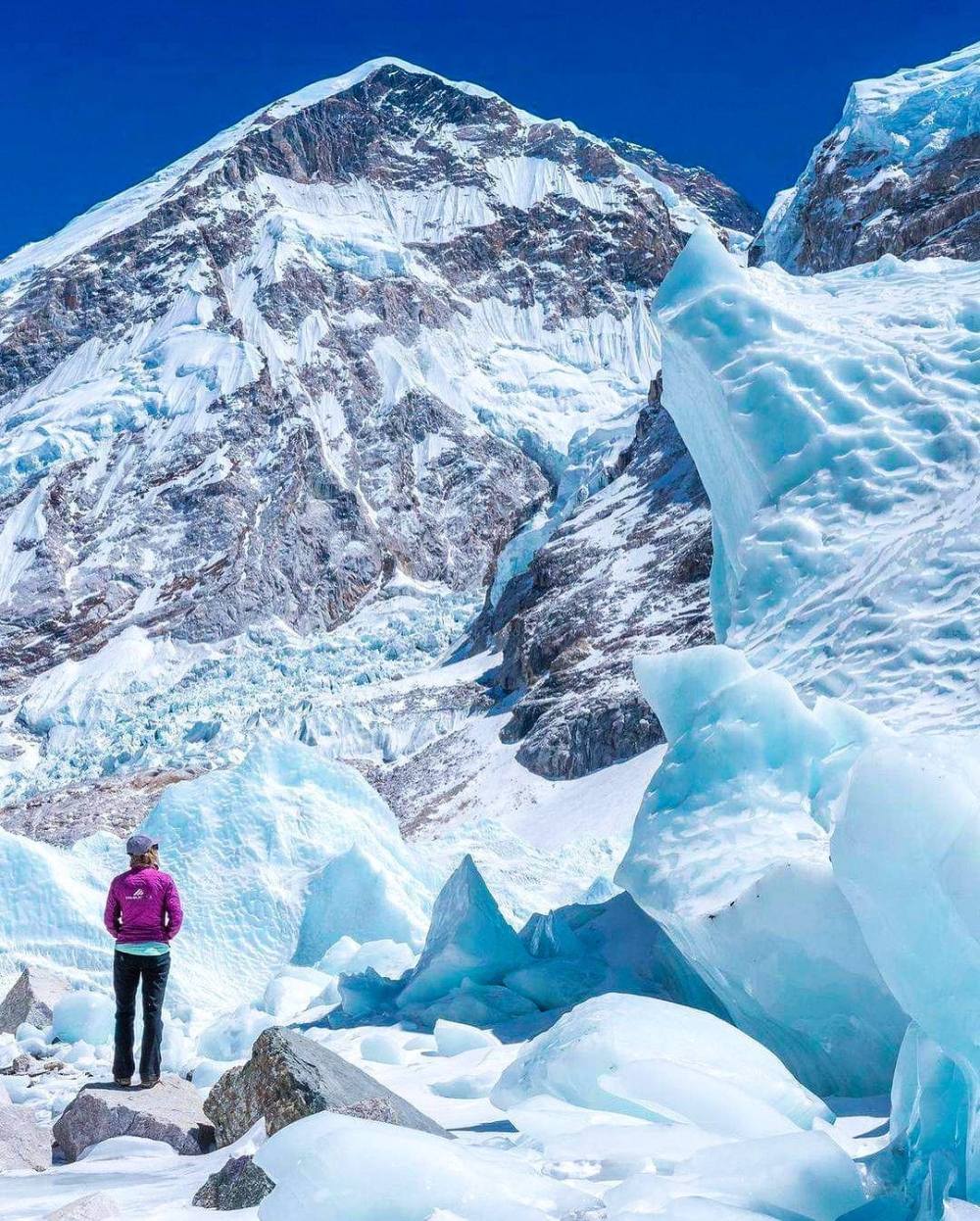
Trekking Permits for Everest Base Camp Trek
Knowing the required permits and costs is important before starting the Everest Base Camp trekking. These permits help preserve the region’s natural beauty and support local communities. This trek requires two essential permits.
Sagarmatha National Park Entry Permit
The Sagarmatha National Park Permit for the EBC trek costs around $30. It’s necessary to enter the protected area, which houses the world’s tallest peaks. You can easily obtain this permit at the Monjo checkpoint on your way to Mount Everest Base Camp.
Khumbu Pasang Lhamu Rural Municipality Permit
The Khumbu Pasang Lhamu Rural Municipality Permit costs Rs 3,000 (around $30) per person. This permit supports the local community's development. You can get this permit in Lukla at the Chheplung checkpoint.
Also, check Tours and Trekking in Nepal
Guide and Porter Cost of Everest Base Camp Trek
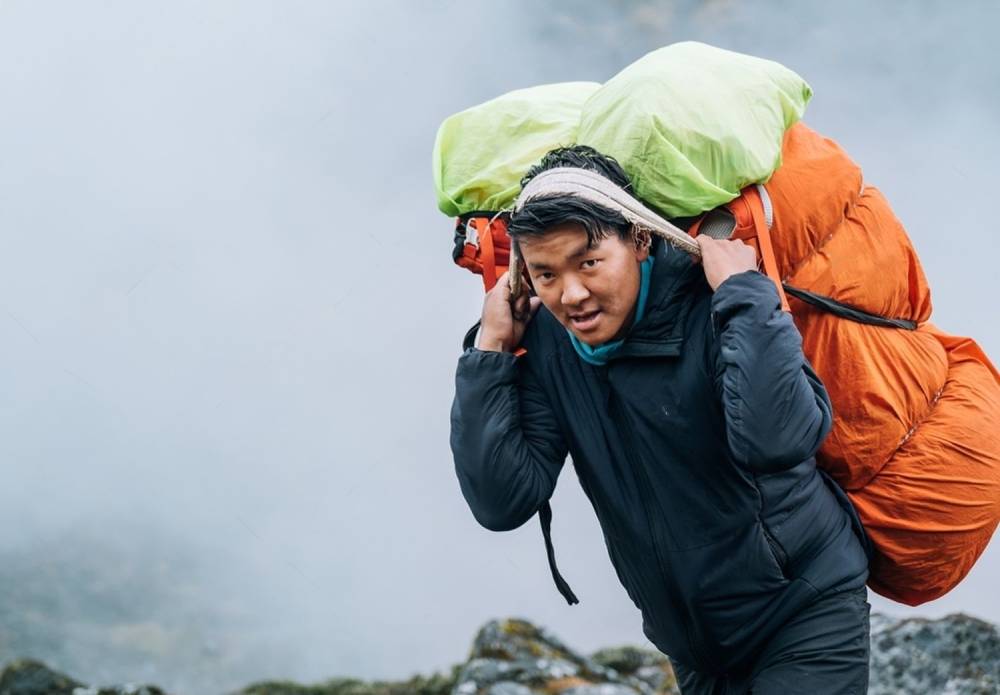
The cost of hiring a licensed guide ranges from $35 to $45 per day. If you prefer a guide fluent in your native language, the rate increases to $55 to $65 per day, depending on the season. However, the language guides need to be pre-booked at least 2-3 months before the trip.
Porter's fees range from $25 to $35 per day. Hiring a porter lightens your load. They allow you to enjoy the trek without carrying heavy bags.
Hiring local guides and porters also enhances your safety during the trek. Local guides are familiar with the region’s weather patterns and potential hazards. They help you avoid risky and difficult situations. They can also secure the necessary permits, ensuring a smoother journey.
Additionally, guides provide cultural insights that make the trek more immersive and meaningful. Meanwhile, porters ease your load, allowing you to focus on the adventure. It's a win-win for both trekkers and the local economy.
Everest Base Camp Trek Starting Points Cost
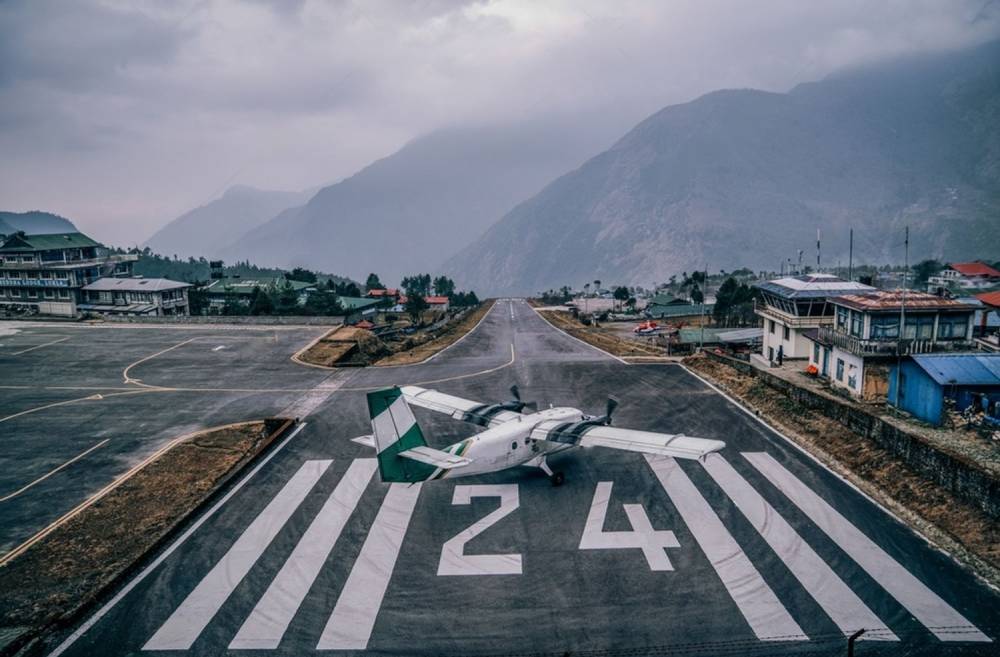
Getting to Lukla is the first step for most Mount Everest Base Camp trekkers. Most people take a flight from Kathmandu to Lukla, which costs around $217 (might hike to $237) for a one-way ticket. This scenic 35-minute flight offers stunning views of the Himalayas.
However, the flight that goes directly from Kathmandu is not there every day. During the peak season to avoid air traffic, the aircraft run their operations to Lukla from Manthali. Manthali is around 5 hours drive away from Kathmandu. So, you usually get up early morning to reach the airport on time by road and then catch the flight. This 15-minute flight is around $165 which can go up to $180 in 2025.
These flights are important. It is because Lukla is the main starting point for many trekkers going to the base camp. Flights fill up fast, especially during peak trekking seasons. It's best to book in advance.
However, if you want an alternative to flying, you can consider the Jiri to Lukla trek or take the Bupsa route. This adds adventure to your journey.
If you enjoy road trips, consider taking a jeep or bus to Jiri or Bupsa instead. This option provides a scenic 12 to 14-hour journey through lush valleys and charming villages. It lets you enjoy beautiful views while slowly acclimating to the altitude. This also increases your trekking by around 2-4 days.
Additionally, you can fly to Lukla by Helicopter. When you fly Lukla from Kathmandu, it takes around 40-45 minutes of flight. The helicopter flight price is around $500 in addition to the flight ticket fair.
Also, check, Everest Helicopter Tour from Kathmandu
Accommodation Cost of Everest Base Camp Trek
When trekking in the Everest region, accommodation is a key aspect of your journey. You will find a variety of lodges and tea houses along the route. These accommodations range from basic to more luxurious options. On average, the cost per night is between $5 and $20. However, prices can reach $200 per night if you prefer luxury accommodations.
The location of your accommodation significantly affects the cost. Higher-altitude lodges generally have higher prices due to increased demand and limited supplies. Amenities may also vary, with basic tea houses offering fewer comforts than luxury lodges. Planning your stay will help you balance comfort and budget during your Everest trek.
Food and Drinks costs in Everest Base Camp Trek Route
Meals typically consist of options with prices ranging from $5 to $15 each. As you ascend, food prices increase significantly. This is due to transportation challenges and limited supply. There are several food options available in the Khumbu area. Here’s a quick look:
Main Meals: Thukpa (noodle soup), Momos (dumplings), Sherpa stew, macaroni, spaghetti, potatoes, pizza, sandwiches, yak steak, rice, burgers with chips, spring rolls, and a variety of soups.
Breakfast Options: Tibetan bread, chapatti, toast with jam or honey, French toast, pancakes, porridge with milk, and boiled or fried eggs, set breakfast.
Drinks: Tea (black, ginger, lemon), coffee, hot chocolate, fresh lemon, and bottled water. Some teahouses also offer soft drinks and local herbal teas.
It's wise to budget for this. Higher-altitude accommodations will also have higher costs in regard to food.
Bottled water is another important expense during the trek. It generally costs between $2 and $5 per litre, while hot water can be priced at $5 to $10 per litre. Food prices also rise at higher altitudes, making budgeting even more crucial.
Whenever you run out of water, consider using water purifiers on water. This approach helps you stay hydrated.
Additional Costs to Consider for Mount Everest Base Camp Trek
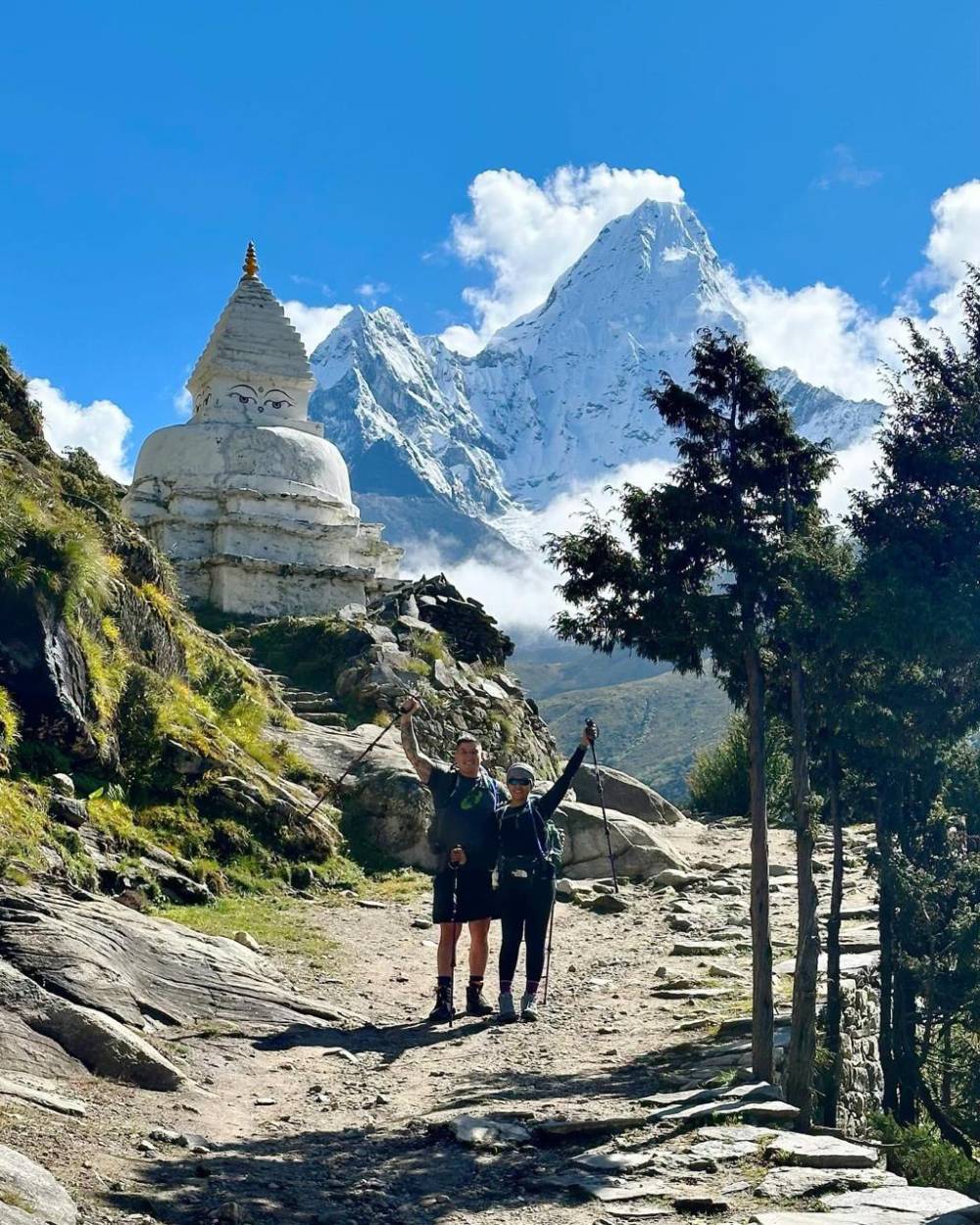
Along the trail, tea houses often charge for basic amenities like hot shower, Wi-Fi, and device charging. These services can range from $5 to $10, depending on your location and altitude. While these conveniences seem small, they add up during your trek.
Another significant expense is gear. If you don’t have your own, you’ll need to rent a sleeping bag and jacket, which can cost around $3 to $10 per day. You can get it on your own but it may cost you more.
Additionally, travel insurance covering trekking above 5,500 meters is vital for safety. Insurance rates vary depending on the provider but are essential for peace of mind at high altitudes.
Tipping Etiquette for Guides and Porters
Tipping guides and porters when you trek Everest Base Camp is a meaningful way to show appreciation. Guides, who offer expertise and safety, are usually tipped $5 to $15 per day. Porters, carrying essential gear and lightening your load, generally receive $3 to $5 daily. Though, it is your choice how much you want to give or how much they deserve.
The importance of their role can’t be understated, especially in challenging terrain. Larger groups often share tips among members. Smaller groups or solo trekkers may tip more. This reflects the extra support and personal care from the team.
Budgeting Summary for Everest Base Camp Trip
Your choice of experience significantly impacts the overall cost of Everest Trekking. Private luxury treks range from $4,000 to $4,500 per person. These treks offer top-tier lodges with better amenities in the Everest Region. You’ll have personalized guides for a tailored experience. Helicopter services are available for luxury travel. This option provides added comfort and flexibility. It is perfect for trekkers seeking a premium adventure.
For those seeking a more economical option, group-joining treks are a great alternative. These packages are priced between $1,200 to $1,700. They include standard tea houses for accommodations. You’ll have shared guides and porters during the trek. Meals are also covered in this package. The services and lodging are simpler, but it’s comfortable. You can still experience the beauty of the Everest Base Camp trek without missing the adventure.
Everest Base Camp Trek Cost in Case of Medical Evacuation
Altitude sickness is one of the major concerns for most trekkers on the EBC Trek route. The trekking route is itself a challenging part. The walk every day grows tougher with altitude and rocky terrain. Thus, altitude sickness can affect anyone who cannot adapt to the environment pretty well. This directly affects the cost.
For any sort of medical evacuation, we as a trekking operator, will need your Travel Insurance that covers even the high-altitude rescues. The helicopters need to rescue the trekkers from altitude which itself comes at the price of at least $4000. The price can go even higher depending upon the time of rescue and altitude. Additionally, your medical bills should be payable by your travel insurance. If you do not have travel insurance that covers the conditions, then the bill goes from your pocket, itself. Thus it is highly recommended to have proper travel insurance from your country.
If you want to be in a safe zone to avoid altitude sickness, we suggest not to skip acclimatization day.
Sample Cost Breakdown for a 12-Day Everest Base Camp Itinerary
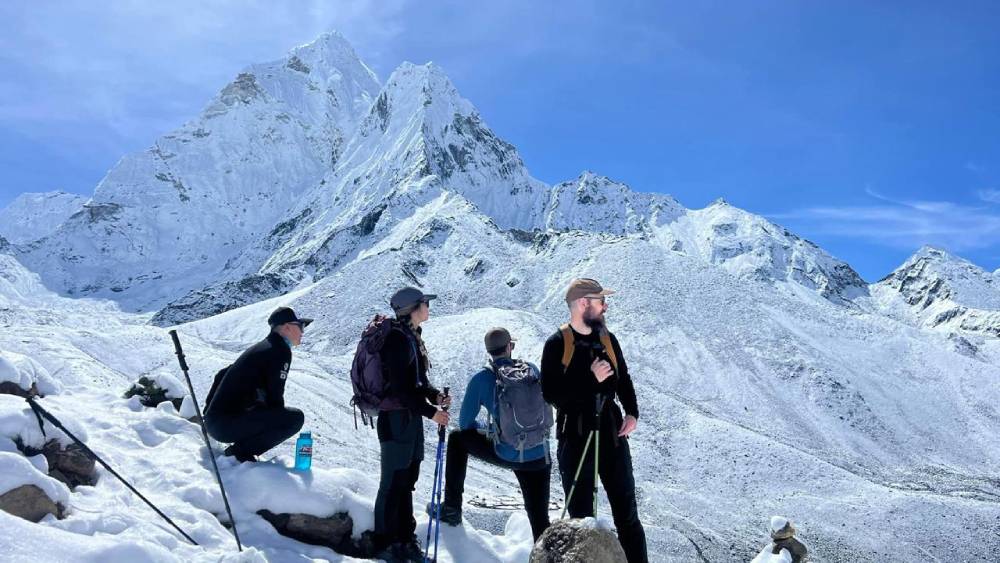
The cost of a 12-day Everest Base Camp trek depends on the level of experience you choose.
Standard-range trekkers pay between $100 to $120 per day. This includes slightly better accommodations and meals. The total cost is around $1,500 to $1,800. For a luxurious experience, the cost rises to $250 or more per day. This option includes premium lodges and services. The total cost for this luxury trek is between $3,000 to $4,000.
Conclusion
The Everest Base Camp trek cost varies from $1,200 to over $4,200, depending on your preferences. Budget options offer simplicity, while luxury treks provide extra comfort and services. No matter your choice, every penny goes toward an unforgettable experience.
This adventure is more than just a financial investment. It's a chance to witness breathtaking Himalayan landscapes and immerse yourself in a rich culture.

